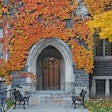Editor's note: The Coaches Corner column appears regularly on the DrBicuspid.com advice and opinion page, Second Opinion.
According to Ronald Heifetz, a professor at the Harvard Kennedy School in his book, The Practice of Adaptive Leadership, "The most important skill and the most undervalued capacity for exercising adaptive leadership is diagnosis."
He uses this wonderful metaphor:
Imagine you were at a dance, you loved the music and the company of your friends, the band seemed right on point ... in short, it was a great party. That is your view. You haven't noticed the several groups of people standing next to the wall in the back of the ballroom, not dancing, not smiling, and almost certainly not having a good time.
Was it a good party?
Now go up to the balcony, a place where you can see the entire dance floor and every corner of the hall. It is from the balcony that you can see both those who are having a blast and those who appear to not be having a good time at all. When the band changes the music, you notice that some folks sit down and others get up. When the band plays oldies, the seniors get up and become engaged. But when the music changes to something more nontraditional and edgy, they sit down again, seemingly disinterested.
Think about your role as an adaptive leader in your office. Diagnosis is the first and most important skill in our repertoire. Before a proper diagnosis is made, no proper treatment can be rendered, no action is possible. Skillful treatment and skillful action must always be preceded by skillful diagnosis.
Have you sat in the balcony lately and viewed the action from above the fray? Have you noticed who is engaged and who is not? Who is growing and learning new techniques and new technology? When you do this analysis, do you include yourself? Are you looking for answers in the same old places? Are you looking for technical answers rather that adaptive ones? Are you doing the old-time fox-trot when almost certainly there are new dances to learn and new rhythms to hear?
Of course a dental office is not a dance studio or a cotillion ball, but still there are lessons to learn from each. Sit in the balcony for at least a few minutes each day. Take the time to observe and reflect on what you see.
Alan Goldstein, D.M.D., F A.C.D., is a member of the Dental Coaches Association, an organization of dentists and professional coaches who are committed to bringing professional coaching to the dental profession. Learn more by visiting www.dentalcoachesassociation.org.
The comments and observations expressed herein do not necessarily reflect the opinions of DrBicuspid.com, nor should they be construed as an endorsement or admonishment of any particular idea, vendor, or organization.
Copyright © 2010 DrBicuspid.com



















